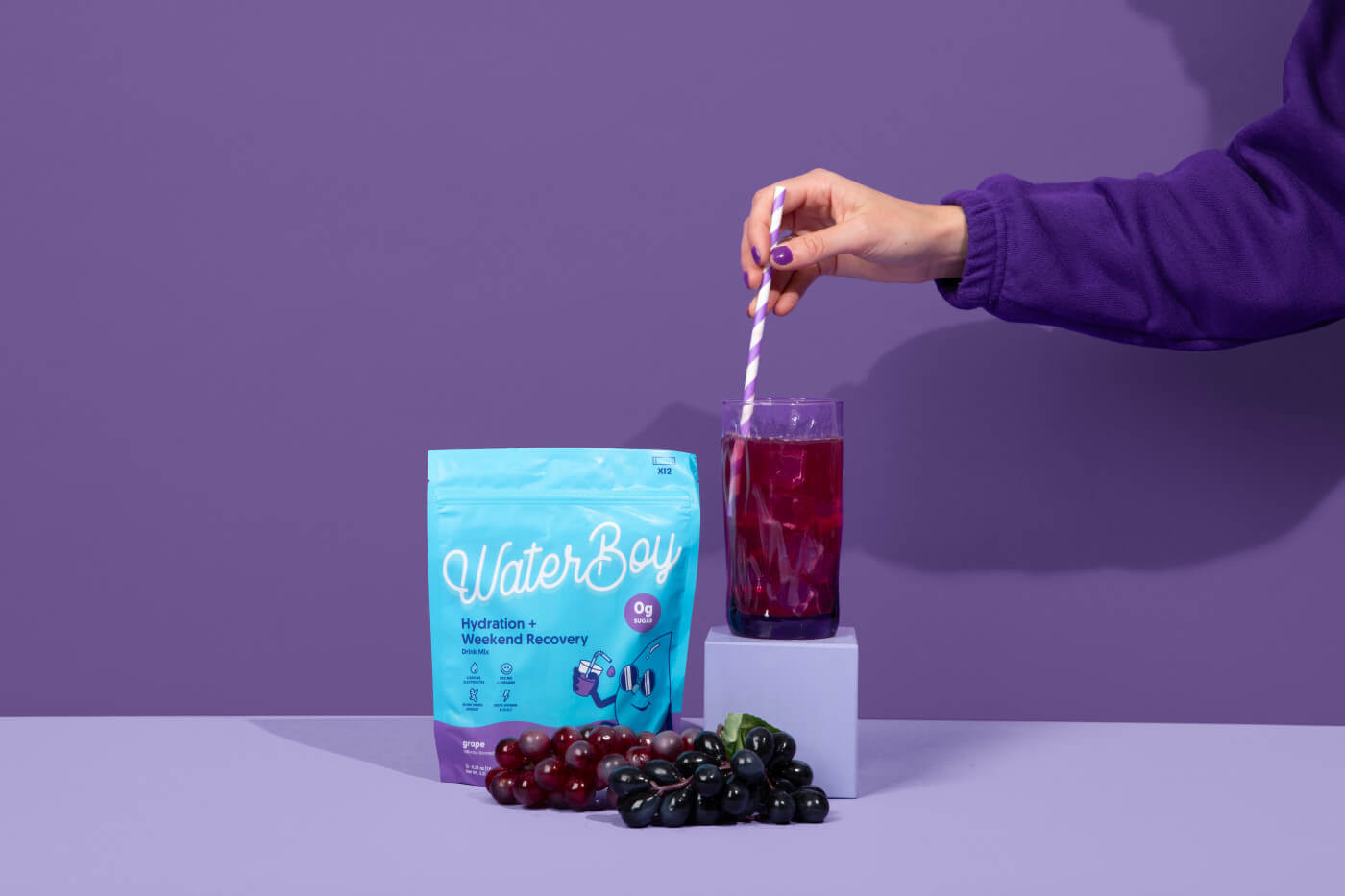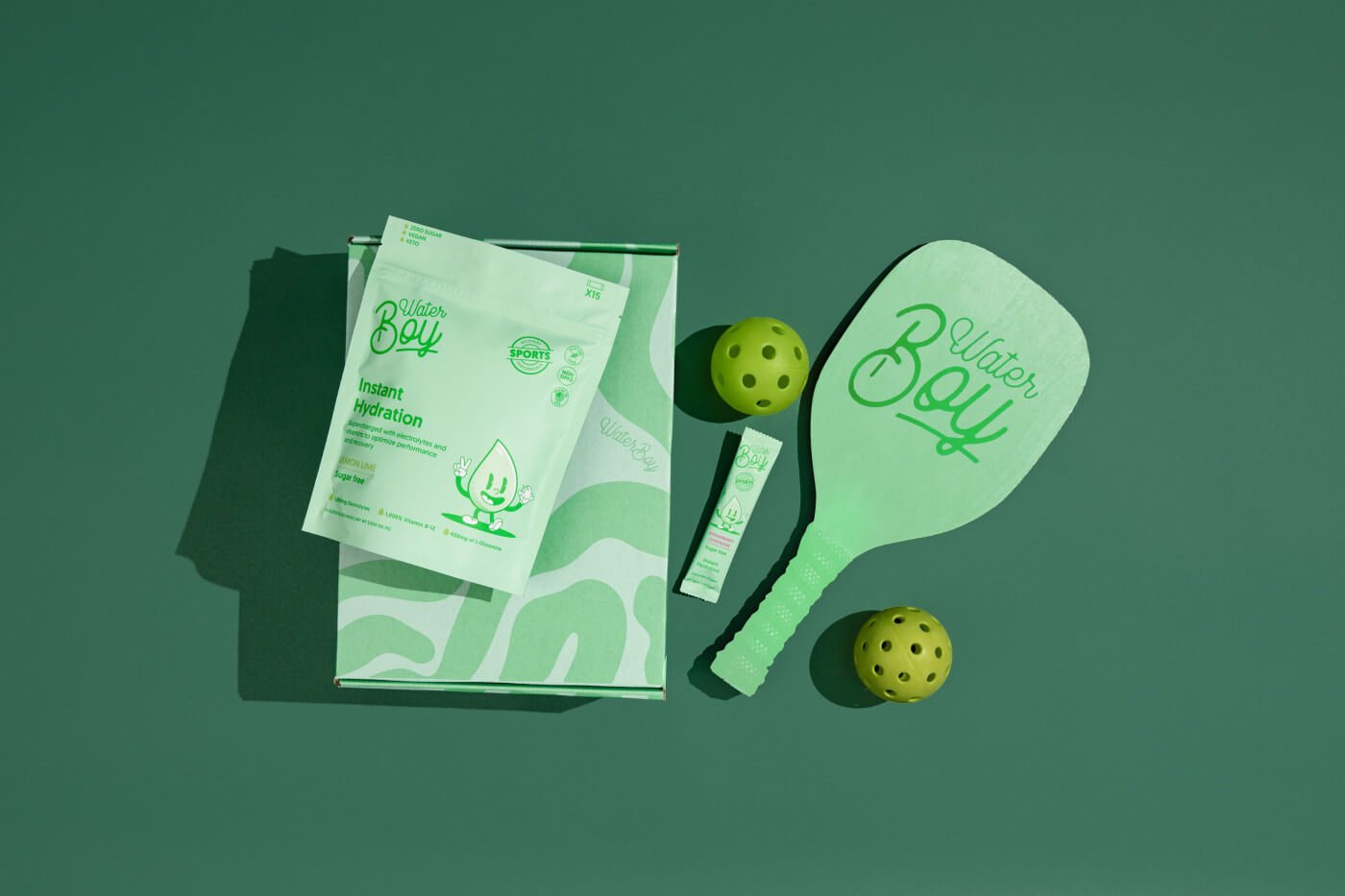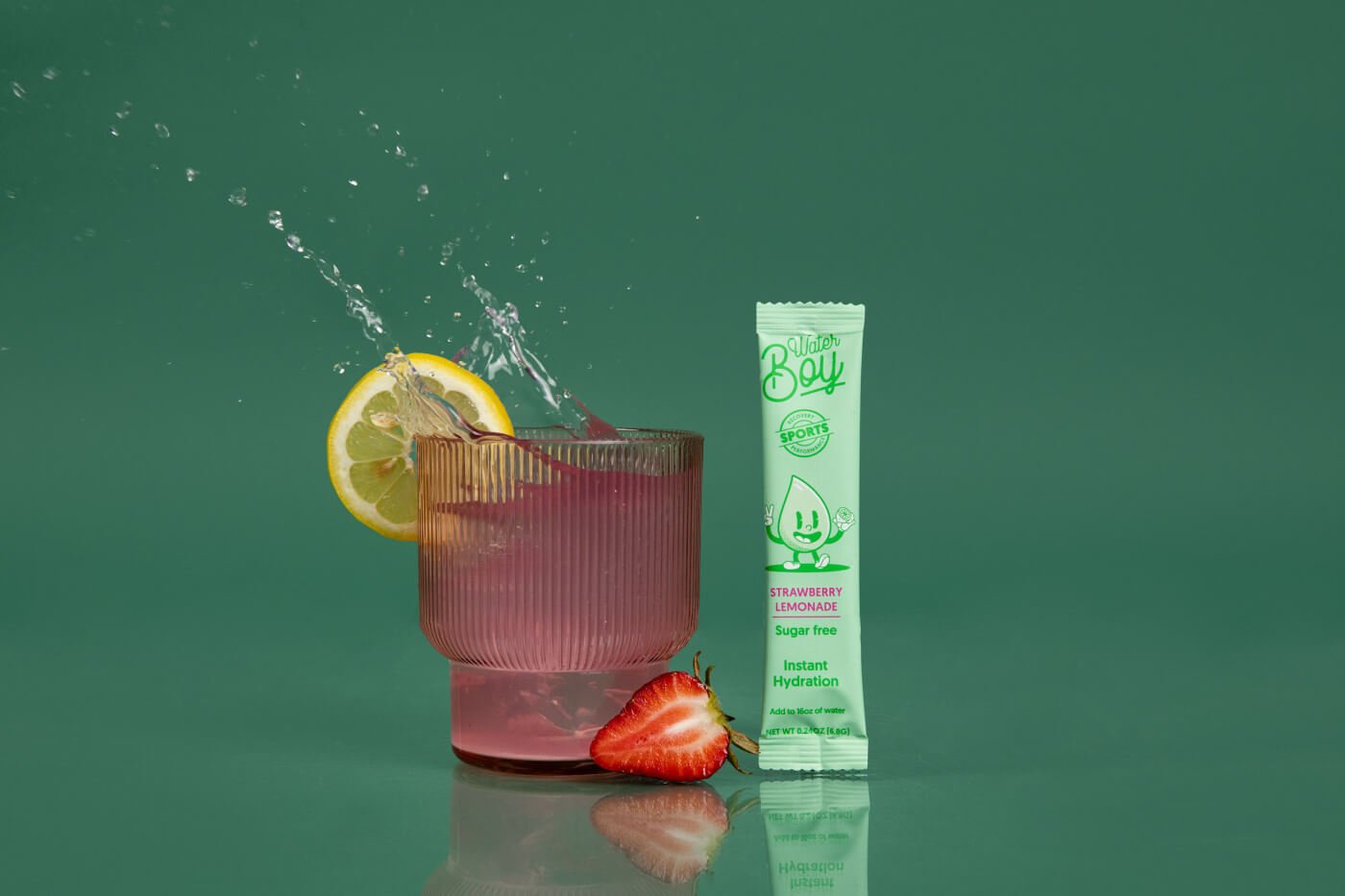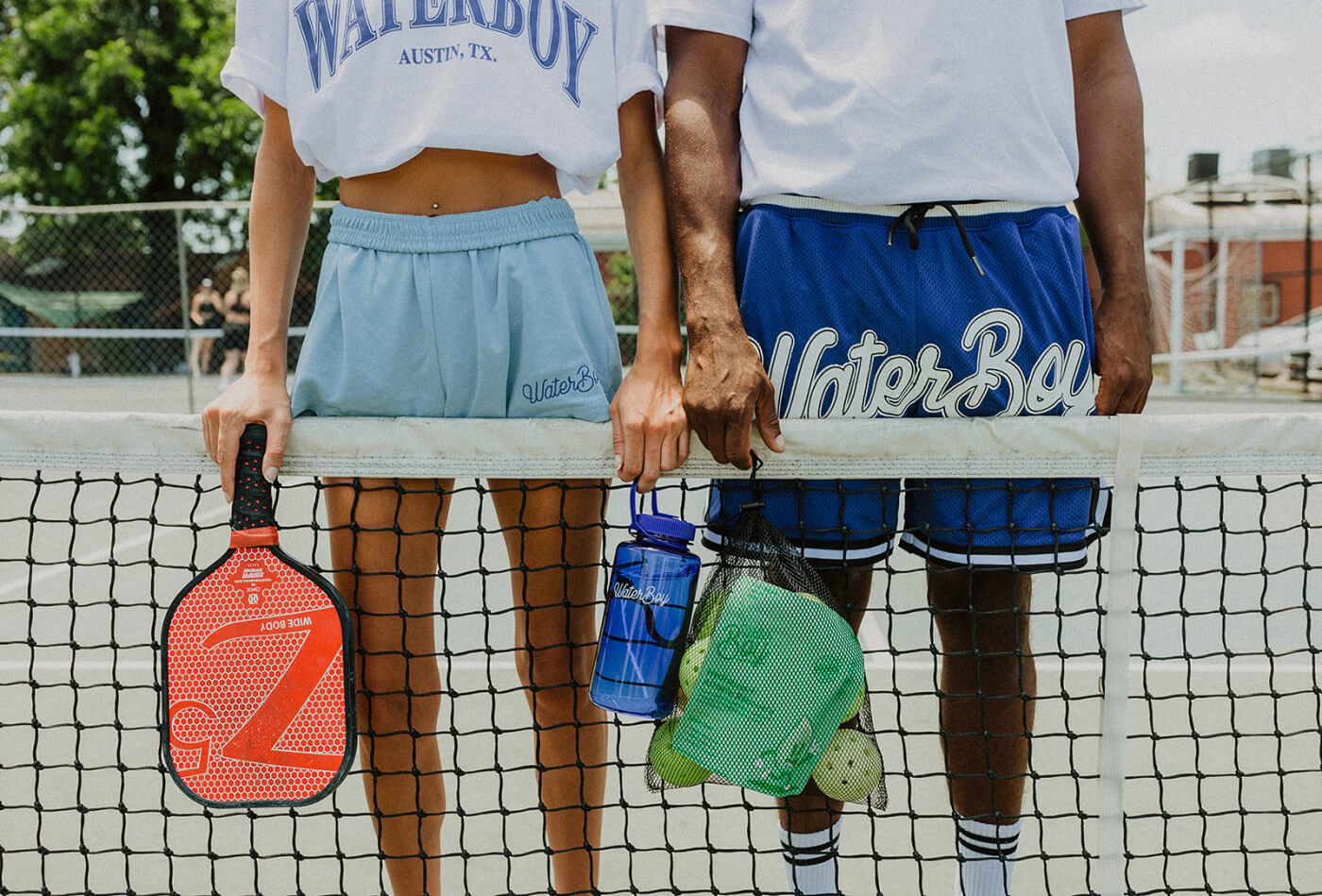TL;DR — Sugar is not an electrolyte, since it can’t carry an electrical charge. Rather, sugar is a carbohydrate that your body uses for quick fuel.
If you check the ingredients on popular sports drinks and electrolyte supplements, there’s a solid chance you’ll find sugar (often in the form of dextrose) near the top of the list.
So, if the product is labeled as an “electrolyte supplement” and sugar is one of the main ingredients in the formula, that means sugar counts as an electrolyte, right?
Wrong.
Sugar (in moderation) has some important jobs in your body—but conducting electricity isn’t one of them. Keep reading to learn the difference between sugar and electrolytes, whether sugar helps (or hinders) your hydration efforts, and why so many hydration supplements are loaded with the sweet stuff.
Is Sugar an Electrolyte?
No—sugar is not an electrolyte since it doesn’t carry an electric charge or dissociate into ions when dissolved. Rather, sugar is a carbohydrate that gives your body energy when it’s broken down into glucose. Sugar can theoretically help your body absorb electrolytes, fluids, and nutrients, but it’s not an electrolyte itself and you don’t need it for hydration.
Electrolytes are minerals that carry an electric charge when dissolved in a liquid, typically in bodily fluids such as blood, plasma, and interstitial fluid. The most abundant electrolytes in your body include sodium, potassium, magnesium, calcium, and chloride. These minerals help conduct electrical signals in your cells, which enable all sorts of bodily functions, including:
- Regulating fluid balance (AKA keeping you hydrated)
- Muscle function
- Nerve function
- Nutrient transport
- Kidney function
Sugar (AKA sucrose) is a type of carbohydrate that serves as a quick source of fuel. When you consume sugar, your body breaks it down into glucose, which enters your bloodstream and is transported to cells throughout your body. Cells use glucose as their primary source of energy, particularly in the form of ATP (adenosine triphosphate), which is the “energy currency” of the cell.
Sugar often gets mistaken for an electrolyte, since it’s so common in sports drinks and hydration supplements. But as you can see, they do very different jobs in your body. So, sugar isn’t an electrolyte—but can it still help you hydrate?
Does Sugar Help with Hydration?
Sugar—specifically in the form of glucose—may help your body absorb water and electrolytes, but it’s not necessary for hydration.
A lot of oral rehydration solutions are based on the principle that sugar encourages cells to absorb salt and water in your small intestine and kidneys. That’s valid, but it’s also important to note that your body easily absorbs electrolytes into your bloodstream without sugar. Sodium and water both diffuse passively through your gut without the help of any cotransporters, like sugar.
One clinical trial in the Journal of Science and Medicine in Sport found that oral electrolyte solutions effectively rehydrated ultra-endurance athletes as well as a saline IV—all without sugar. If your body needed sugar to rehydrate, those results wouldn’t be possible.
This is great news if you trying to limit your sugar intake, whether you’re on a keto diet or just want to avoid unnecessary calories.
Bottom line: You don’t need sugar to stay hydrated, but you do need electrolytes.
Can Sugar Dehydrate You?
Consuming excessive amounts of sugar can definitely dehydrate you. That’s because your body has to use water to digest and metabolize sugar, thereby depleting your fluid levels. Fructose is the most notorious type of sugar that sabotages your hydration levels. It’s been shown to damage the kidneys and cause fat buildup in the liver.
Let’s take a closer look at three ways sugar can lead to dehydration:
- Osmotic Effect: Sugary foods and drinks have a high osmotic pressure, meaning they pull water from your body's tissues into the digestive tract to dilute the sugar. This can lead to increased urination and fluid loss.
- Diuretic Effect: Some sugary beverages, such as caffeinated sodas or energy drinks, increase urine production, leading to fluid loss and potential dehydration.
- Lack of Hydration: Choosing drinks loaded with sugar may displace healthier beverage choices, such as water, which is essential for maintaining hydration levels in the body.
As if dehydration wasn’t enough to worry about, sugary drinks don’t seem to quench your thirst either. One peer-reviewed study found that people drinking sucrose-sweetened lemonade actually felt more thirsty than people drinking the equivalent amount of water.
You Don’t Need a Sugar High to Hydrate
We won’t name names, but some popular hydration supplements are loaded with as much as 34 grams of sugar—that’s almost the entire recommended daily intake for men and well above the recommended intake for you ladies out there.
Sure, a fat dose of dextrose might make your athletic recovery drink or hangover supplement taste like candy. But for most active adults, the added calories aren’t worth it. The real hydration heroes are electrolytes. That’s why each packet of WaterBoy is packin’ 3,200 mg of electrolytes—and zero sugar.
Whether you’re recovering from a brutal workout or a brutal hangover, we’ve got all the goods you need, without the junk you don’t need.
Workout Hydration
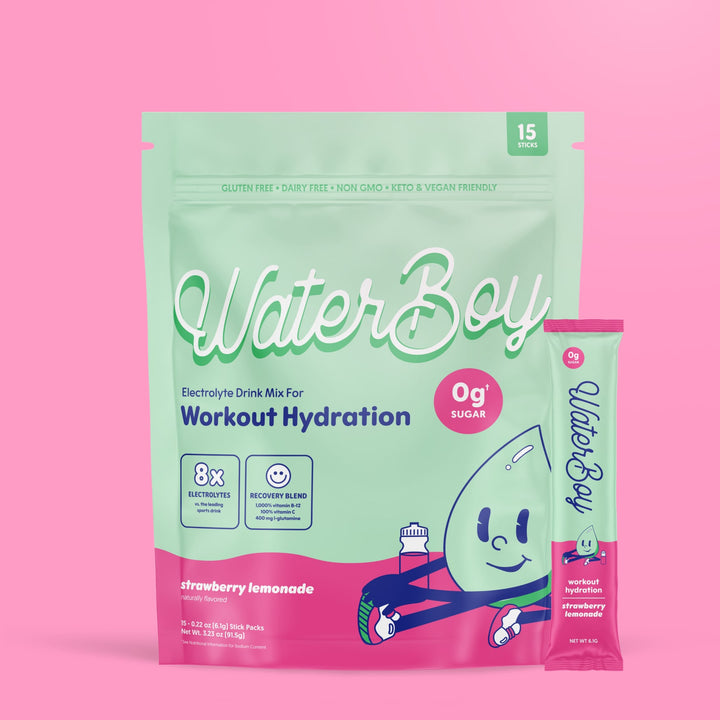
$24.99
WorkoutRather than make a one-size-fits-all-dehydration product with varying amounts of sugar and salt, we make our formulas specifically when you need them. Our workout hydration formula is not only packed in electrolytes, but we've added a blend of ingredients to… read more

